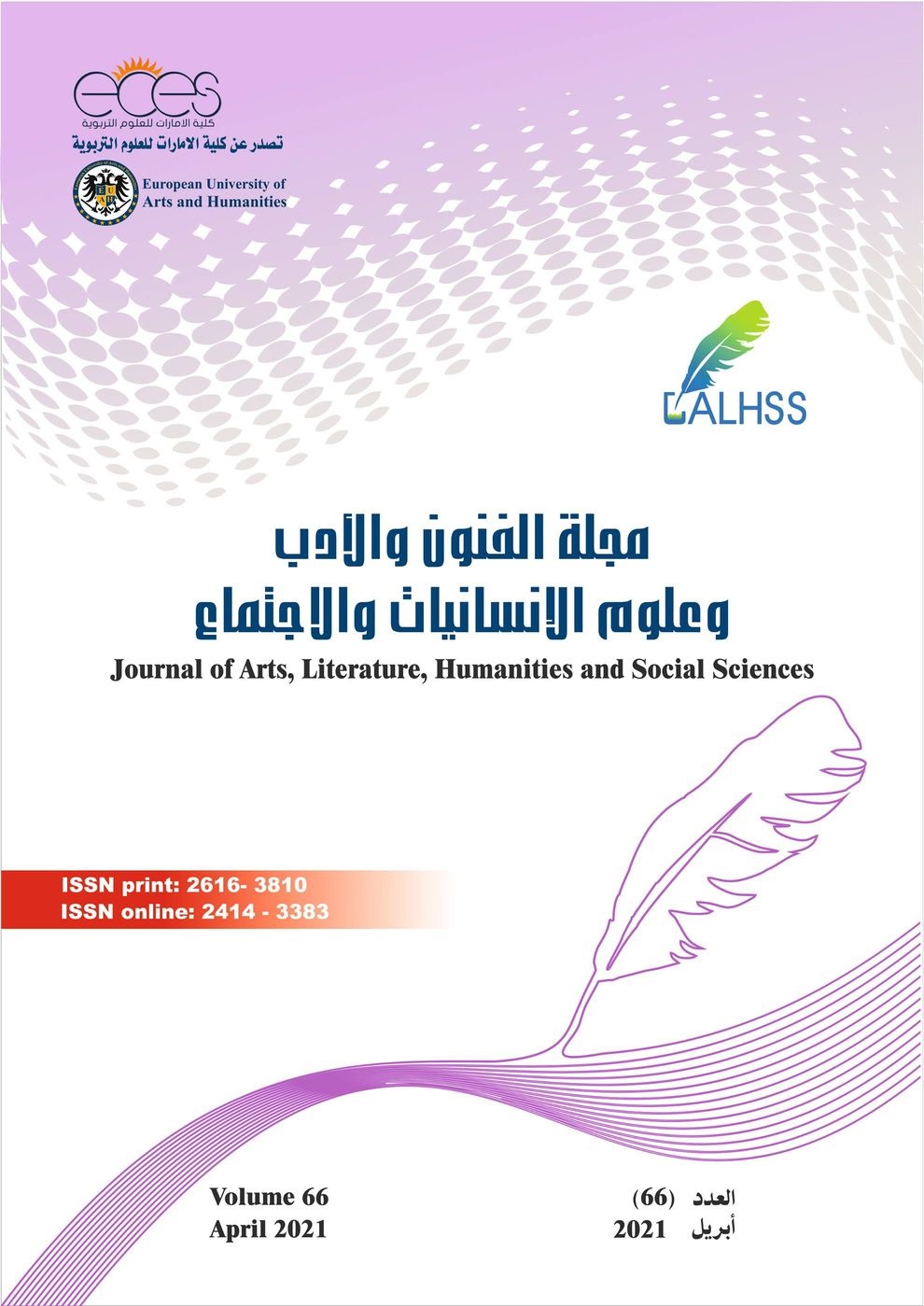التقييم الذاتي لمؤسسات الطفولة باستخدام النموذج الأوروبي للتميز المؤسسي ( EFQM)
(دراسة مقارنة)
الملخص
الخلفية: ظهر تطبيق نموذج التميز للمؤسسة الأوروبية لإدارة الجودة (EFQM) بشكل متزايد في الآونة الأخيرة في العديد من المنظمات. كان الهدف من هذه الدراسة هو إظهار تأثير استخدام التقييم الذاتي لنموذج التميز EFQM في منظمات الطفولة المبكرة بقطاعيها الحكومي والخاص. ونموذج التميز EFQM هو إطار غير إلزامي يستند إلى تسعة معايير. هذه المعايير تشمل القيادة، السياسة والاستراتيجيات، العاملون، الشراكات والموارد، العمليات، نتائج العملاء، نتائج المجتمع، نتائج الأداء الرئيسية. هذه الدراسة استخدمت التقييم الذاتي من خلال اجراء دراسة مقارنة بين مؤسسات الطفولة والتي تم اختيارها بشكل عشوائي. النتائج: كشفت نتائج هذه الدراسة أهمية استخدام EFQM في تطوير منظمات الطفولة المبكرة. في هذا السياق، يتم الاعتراف بالتقييم الذاتي القائم على نموذج التميز EFQM كأداة قوية للسيطرة على عملية التحسين المستمر للمؤسسة. الاستنتاجات / الأهمية: أظهرت الدراسة أن هناك فروقات واضحة في الحصول على معدل مرتفع للحصول على التميز المؤسسي بين مؤسسات الطفولة المبكرة عند تطبيق النموذج الأوروبي للتميز المؤسسي. وقد أوصت الدراسة القادة مؤسسات الطفولة المبكرة بذل المزيد من الجهود خاصة في القطاع الحكومي لزيادة الجهد المبذول لتحقيق الجودة باستخدام النموذج الأوربي EFQM في تطوير أدائها.
المراجع
2. Barttett, L., & Vavrus, F. (2017). Comparative case studies: An Innovative Approach. Nordic Journal of Comparative and International Education (NJCIE), 1(1), 5-17.
3. Boulter, F., Bendell, T., Abas, H., Dahlgaard, J., &Singhal, V. (2005). Report on EFQM and BQF Funded Study into the Impact of the Effective Importance of Organizational Excellence Strategies on Key Performance Results. The Centre of Quality Excellence, University of Leicester, Leicester.
4. Calvo-Mora, A., Picón-Berjoyo, A., Ruiz-Moreno, C., & Cauzo-Bottala, L. (2015). Contextual and mediation analysis between TQM critical factors and organisational results in the EFQM Excellence Model framework. International Journal of Production Research, 53(7), 2186-2201.
5. Dodangeh, J & Rosnah, M. (2011). Designing fuzzy multi criteria decision making model for best selection of areas for Improvement in EFQM (European Foundation for Quality Management) model. African Journal of Business Management, 5(12), 5010-5021.
6. EFQM (2003a). The Fundamental Concepts of Excellence. Retrieved from www.efqm.org/uploads
7. EFQM (2003b). Introducing Excellence. Retrieved from www.efqm.org/uploads
8. Faraj.J, S. (2018). Assessing Excellence Management in the light of the European Excellence Model at Taif University. Educating for the future, 6(4), 175-186.
9. Farror, M. (2000). Structuring success: a case sudy in the use of the EFQM excellence model in school improvement. Total Quality Management, 11 (4,5,6), 691-696.
10. Issawi, N. (2016). Change Management as an Intermediate Variant for the Influence of the Leadership Style on Ex¬cellence in University Performance: Applied to Admin¬istrative Leaders at Tabuk University in Saudi Arabia. Journal of Arab Organization for Administrative Devel¬opment, 36(1), 1-62.
11. Hakkak, M., & Ghodsi, M. (2015). Impact of implementing total productive maintenance system on organizational excellence based on EFQM model. International Journal of Business Excellence, 8(2), 197-209.
12. Hillman, G. P. (1994). Making self-assessment successful. The TQM Magazine, 6(3), 29-31.
Lead to Organization Excellence. European Scientific Journal, 12(34), 1857-7881.
13. Loukas N. Anninos, (2007) "The archetype of excellence in universities and TQM". Journal of Management History, 13 (4), pp.307 – 32.
14. Mønsted, M. & Føns, T. (2002). A comparative assessment of the EFQM Excellence model and the ISO 9001:2000. Aarhus School of Business: Aarhus.
15. Oakland J.S. (2003). TQM. Text with Cases, Butterworth-Heinemann
16. Osseo-Asare, A.E., & Longbottom, D. (2002). The need for education and tanning in the use of the EFQM model for quality management in UK higher education institution. Quality Assurance in Education,10(1), 26-36.
17. Rodriguez-Montilla, J.M., Martinez-Zarzuelo, A., & Fernández-Cruz, J. (2020). Do ISO:9001 standards and EFQM model differ in their impact on the external relations and communication system at schools? Evaluation and Program Planning,80, 0149-7189.
18. Saraiva, M.P, Rosa, M., J., & d'Orey, J.L. (2003). Applying An Excellent Model To School. Localizacion: Quality Progress, 36(11), 46-51.
19. Sadeh, E., & Garkaz, M. (2015). Explaining the mediating role of service quality between quality management enablers and students’ satisfaction in higher education institutes: The perception of managers. Total Quality Management & Business Excellence, 26(11–12), 1335–1356.
20. Schubert, H., & Zink, K.J. (2005). Qualitätsmanagement im Gesundheits- und Sozialwesen. Neuwied: Luchterhand.
21. Spasos, S., Petropoulos, G., & Vaxevanidis, N.M. (2008). Implementation of EFQM model in a Greek engineering higher education institute: A framework and a case study. International Journal for Quality Research, 2(1), 43-50.
22. Tajri, M. (2005). Evaluation EFQM Model in Organization. Management Review, 75 (4), 101–102.
23. Teh,P.L., Young,C.C., Arumugam,V., Ooi, K.B. (2009). Does Total Quality Management Reduce Employees’ Role Conflict. Industrial Management& Data Systems, 109 (8), 1118-1136.
24. Wolery, M. (2004). Assessing children’s environments. In M. McLean, M. Wolery, & D. Bailey (Eds.), Assessing infants and preschoolers with special needs (3rd ed., pp. 204–235). Upper Saddle River, NJ: Pearson Merrill Prentice Hall.



